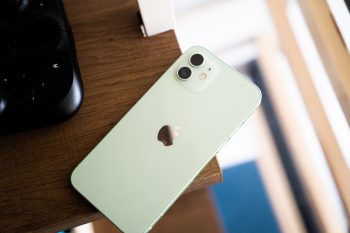
EU mandate could force Apple to give up the dark side
If the European Commission has its way, Apple may be forced to join the ranks of smartphone makers that rely on USB-C for charging. A new proposal has been entered which would turn USB-C into the “standard port for all smartphones, tablets, cameras, headphones, portable speakers and handheld videogame consoles.” The reason for the change, at least according to the Commission’s proposal, would be to take “an important step against e-waste and consumer inconvenience.”
This isn’t the first time that the European Union has attempted to force Apple to make the switch from Lightning to USB-C. However, previous attempts have largely fallen short, as Apple continues to rely on Lightning for the iPhone, while implementing USB-C into other products in its lineup.
Are your chargers piling up in a drawer?
We propose a common charger for mobile phones and other similar electronic devices.
A single charger will be more convenient for people and will reduce electronic waste.
Read more: https://t.co/hkspfjwlhu #DigitalEU pic.twitter.com/ZhWZ8xSGKH
— European Commission 🇪🇺 (@EU_Commission) September 23, 2021
Speaking to The Verge, a spokesperson said for the Commission stated that “a USB-C port is only mandatory for devices that charge using a cable.” Essentially this is an open door for Apple to go through if it wants to ever introduce a “port-less” iPhone, which would solely rely on Qi / MagSafe for charging.
Although microUSB is still being used by some companies (primarily accessories), the rest of the world has already adopted some form of USB-C. Apple remains one of the few remaining holdouts, as the recently-released iPhone 13 continues relying on Lightning. Rumors of a port-less iPhone have been making their rounds over the last year or so, suggesting the device would come as a potential “iPhone Ultra” of sorts. In terms of Apple’s annual release cycle, it would be similar to when the iPhone X was announced alongside the iPhone 8.
Apple did provide a statement to Reuters in regards to this filing:
“We remain concerned that strict regulation mandating just one type of connector stifles innovation rather than encouraging it, which in turn will harm consumers in Europe and around the world.”
The company also points to the changes its made to reducing its e-waste footprint by reducing the size of the boxes that are included with Apple devices. This was done by deciding to forego the included charging brick, a move that has since been followed by many other phone makers. But the argument is still being made whether e-waste is just a pillar for Apple to stand on, or whether it was really just done to help the company continue making exorbitant amounts of money.
In order for this new mandate to go into effect, it will first need to be passed by the European Parliament. If passed, companies will have a “transition period of 24 months” in order provide “ample time” to implement and integrate the USB-C charging standard.